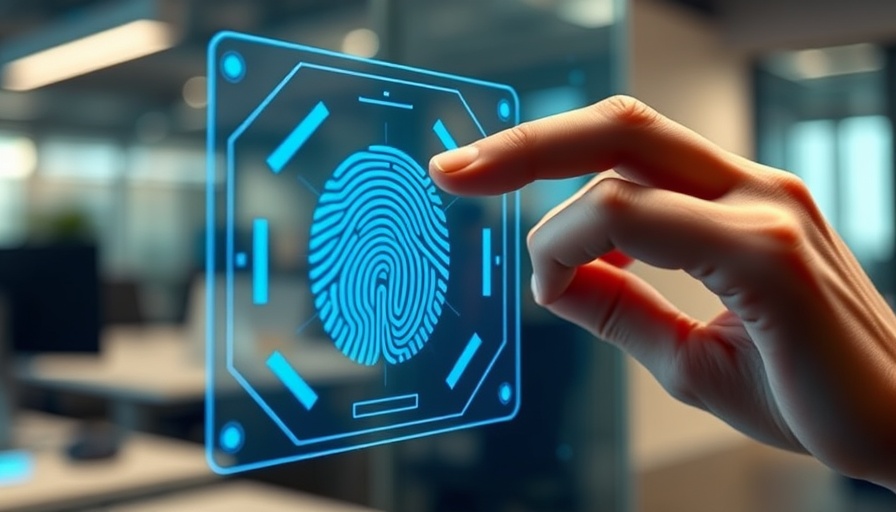
Why Passwordless Authentication is Vital for Healthcare
In today's healthcare landscape, cybersecurity is essential, with human error being cited as a primary risk factor. As healthcare professionals juggle numerous responsibilities, remembering various complex passwords can lead to mistakes that compromise patient data. Passwordless authentication offers a streamlined solution to this pressing issue, enhancing both security and workflow efficiency.
Understanding Biometrics: A Seamless Solution
Biometric methods, such as facial recognition and fingerprint scanning, allow healthcare staff to gain quick access without fumbling through passwords. This instantaneous access not only alleviates password fatigue but also enhances focus on patient care—critical in a fast-paced medical environment.
Leveraging Magic Links for Convenience
Magic links provide a modern solution for logging into health portals without the burden of forgotten passwords. When a user clicks a link sent to their verified email, they bypass the need for traditional login credentials. This is particularly useful in healthcare settings, where time is of the essence.
Smart Cards and Tokens: Fortifying Compliance
Utilizing physical tokens or smart cards can significantly reduce cybersecurity risks. These devices generate secure codes that facilitate logging in without managing a complex password system. Moreover, they play a pivotal role in maintaining compliance with regulations like HIPAA, safeguarding patient information through secure access.
Enhancing User Experience with Persistent Cookies
Persistent cookies improve the user experience by keeping users logged in, thus preventing interruptions that could disrupt patient care. This approach ensures that healthcare professionals can focus on what matters most—treating patients—without worrying about frequent logins.
The Role of SMS and App Codes in Accessibility
Text messaging or app codes offer another layer of convenience by enabling users to receive a code on their smartphones. After entering this code, access is granted without the need for a password. This method minimizes the tendency for staff to jot down passwords insecurely, promoting a more secure, efficient environment.
Conclusion: Moving Towards a Secure Future
Implementing passwordless authentication systems not only mitigates risks associated with human error but also empowers healthcare professionals to prioritize patient care. As systems evolve, and cybersecurity breaches grow more sophisticated, adopting these technologies becomes imperative. Evaluating and transitioning to these contemporary solutions is the stepping stone toward a more secure healthcare future.
 Add Row
Add Row  Add
Add 




Write A Comment